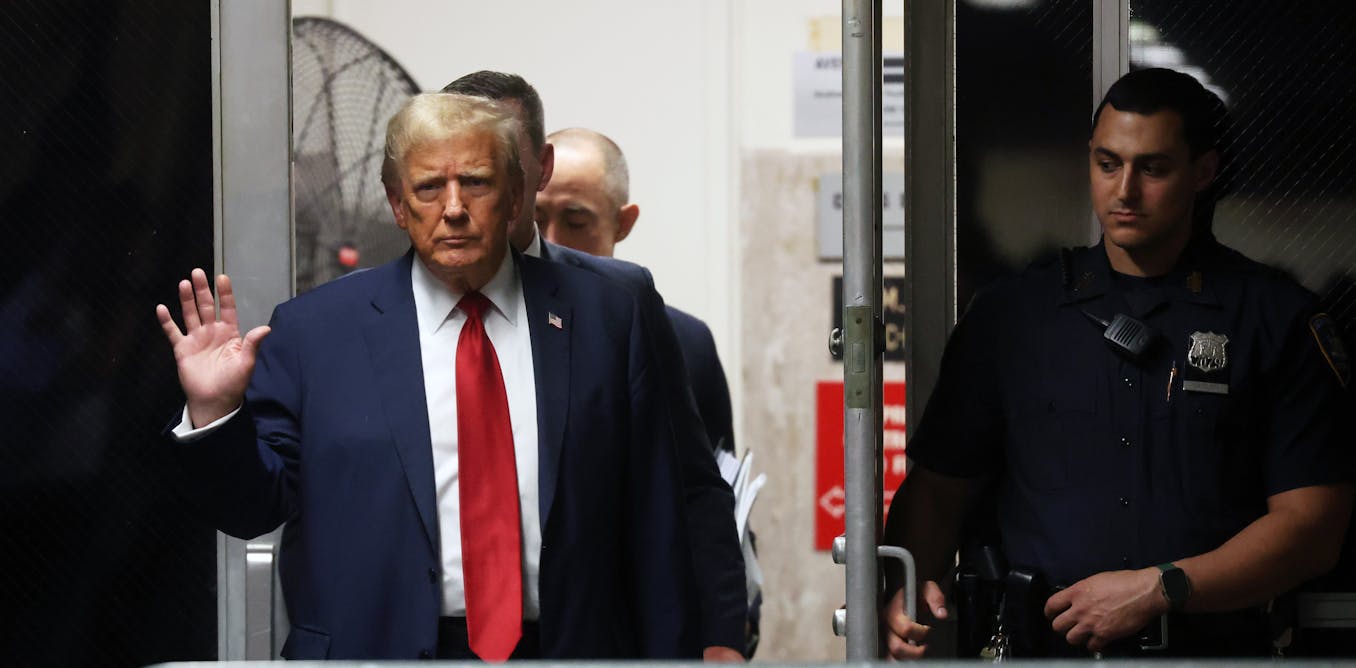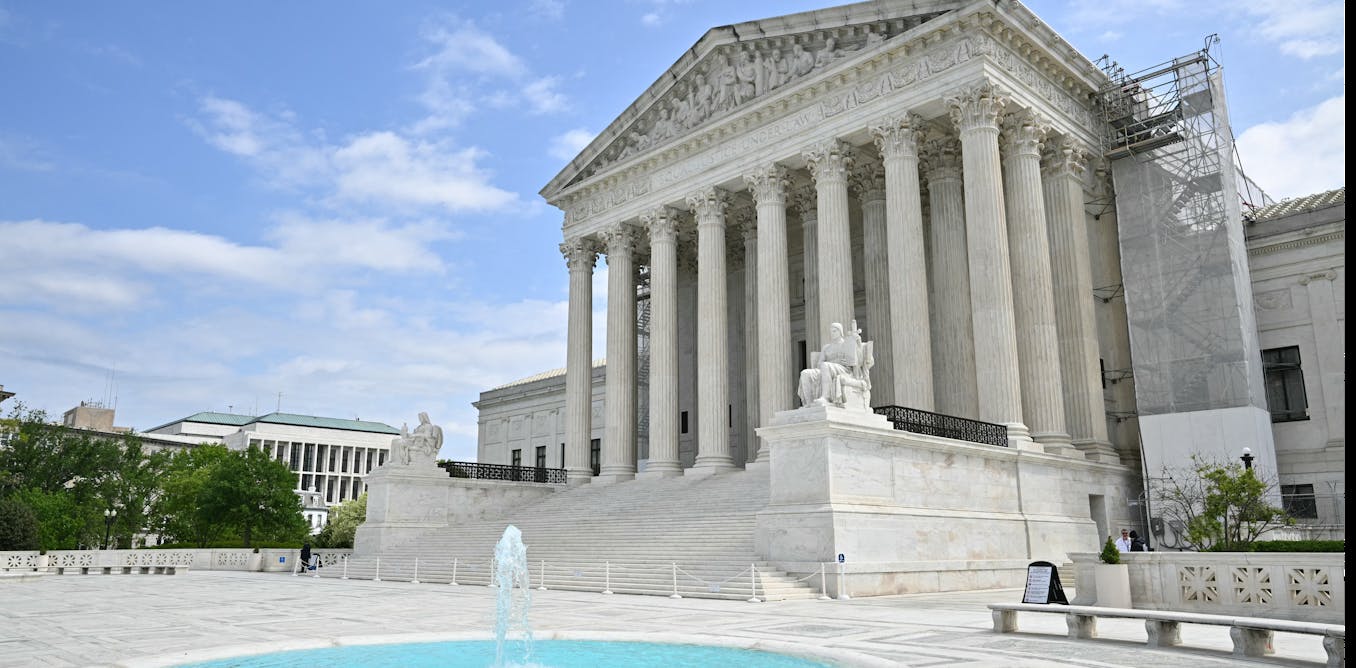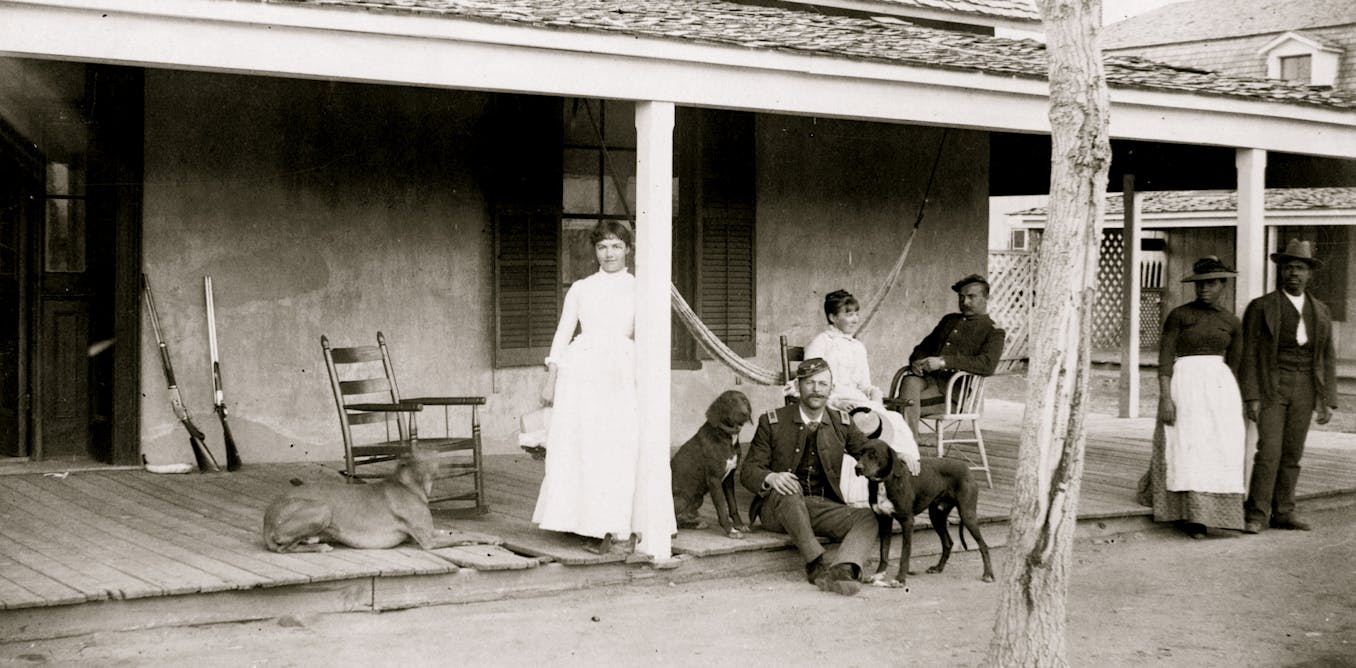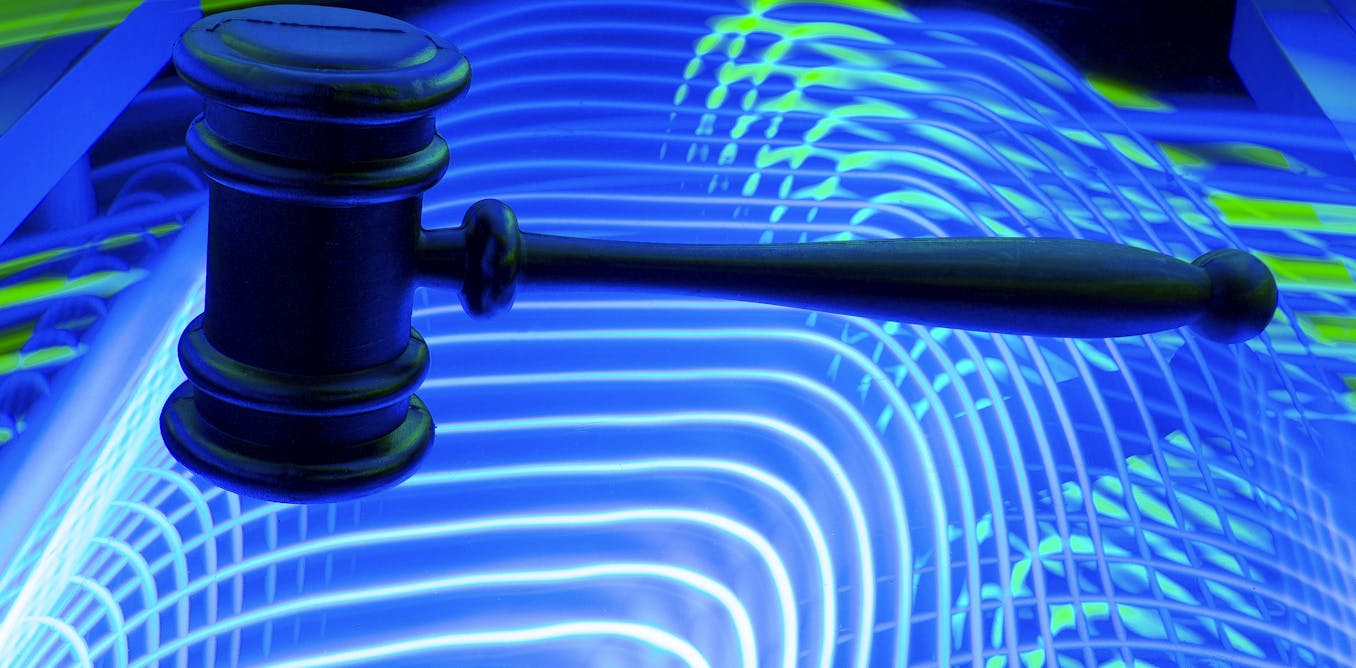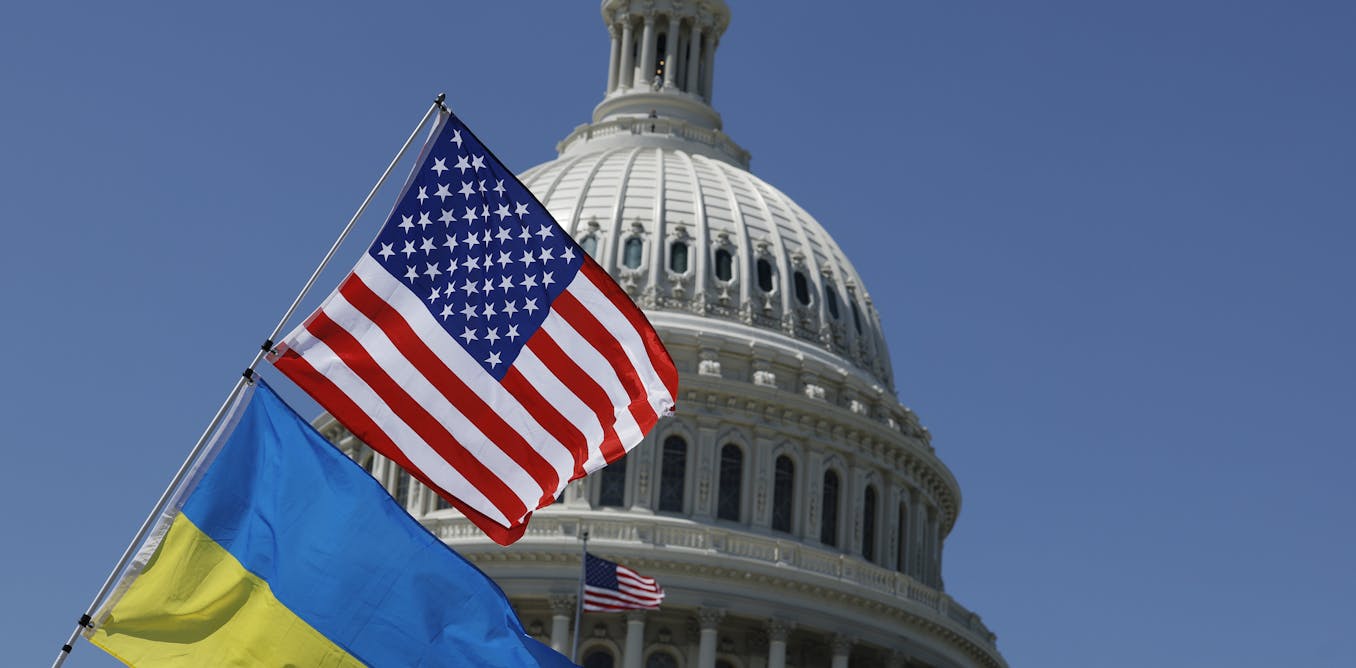Politics
Why courts aren’t the fastest or clearest ways to solve election disputes – a former federal judge explains
Pennsylvania is expected to be a key battleground in the 2024 presidential election, and a lawsuit that is already underway, months before Election Day, could muddle the vote counting process in November.
To avert confusion and public concern, this and any other suits that get filed about election rules will need to be resolved quickly and clearly. But in my experience as a former federal judge, speed and clarity are not necessarily strengths of the judicial system.
Take, for example, mail-in ballots in Pennsylvania. One case about them has ended, but the other is still in process.
The importance of a date
In 2019, the Pennsylvania Legislature enacted a law formally known as Act 77 that allows voters to cast their ballots by mail without needing to specify a reason they prefer to do so rather than vote in person. Among other provisions, the law requires voters to sign and date the outer mailing envelope into which they place another envelope, which contains their ballot, sealed inside.
However, since the law has passed, thousands of voters over several elections have neglected to date the outer envelope before mailing their ballots. County election bureaus across the state have received conflicting legal rulings on whether to set aside the undated ballots and leave them uncounted.

A legal challenge to this dating requirement arose in a hotly contested 2021 county judge race in Lehigh County, about 60 miles north of Philadelphia, in which the unsigned ballots might have made a difference in the outcome.
After a state court ruled the votes should not be counted, the aggrieved candidate and supporters filed a federal lawsuit alleging that election officials, when they obeyed the language of Act 77 and threw out undated ballots, were violating the Civil Rights Act of 1964.
Within the Civil Rights Act is a provision that says a voter’s ballot cannot be rejected for reasons that were immaterial to the voter’s eligibility. In this case, the plaintiffs said a voter’s failure to put a date on the ballot isn’t key to ensuring it was valid. Rather, the plaintiffs argued, the important date is when the ballot is received by the election bureau.
The district court judge, Joseph Leeson, ruled that the undated ballots should not be counted. On appeal, though, a three-judge panel of the U.S. 3rd Circuit Court of Appeals ruled the failure of a voter to put a date on the envelope wasn’t important enough to throw out their votes, and ordered election officials to count the undated ballots. The plaintiffs appealed, and the U.S. Supreme Court granted a stay of the ruling and agreed to review the case.
But by the time the high court considered it, the candidate who brought the law suit had grown weary of waiting for a judicial determination and conceded the race.
As a result, on Oct. 11, 2022, the Supreme Court determined that the underlying controversy had ceased to exist and thus ordered the lower court to vacate its decision, which left unresolved the issue of whether to count undated ballots.
What had been a binding decision on the merits of a thorny issue was swept away.
Making matters more confusing, three justices said the nation’s highest court should have heard the matter anyway: In an opinion joined by Justices Clarence Thomas and Neil Gorsuch, Justice Samuel Alito stated that the 3rd Circuit’s decision to count undated ballots was “likely wrong.” Their reasoning was that the voter’s failure to put a date on the envelope was not the kind of barrier to voting that the Civil Rights Act was meant to protect against. The three of them favored disqualifying the undated ballots.
The question was likely to recur. And it did.
The second time around
In fall 2022, another case involving Pennsylvania ballots whose voters had not dated them came to a federal court. The case was brought by state groups represented by the American Civil Liberties Union and sought to ensure that votes in question were tallied.
The judge, Susan Baxter, issued a ruling in line with the appeals court’s finding in the previous case: The date a voter wrote on the envelope was not relevant to the voter’s eligibility to cast a ballot, so undated ballots should be counted.

The Republican Party appealed the ruling to the 3rd Circuit, and the appeal was heard by a different three-judge panel. On March 27, 2024, those judges ruled in opposition to their colleagues’ earlier finding, saying undated ballots should not be counted.
But it’s possible that, just like with the first case, the U.S. Supreme Court might be asked for – and grant – a stay of this second appeals court ruling and consider reviewing it. And as before, some justices may believe that whether a voter puts a date on the ballot envelope is in fact legally significant.
The Supreme Court may opt to move quickly in deciding whether to take up the case and, if it does, to hear arguments and issue a decision. But “quickly” for the Supreme Court usually means a matter of months, not days. And the court may choose to move more slowly.
Pennsylvania’s primary election is slated for April 23, 2024. In the meantime, election officials in Pennsylvania remain in a legal limbo, uncertain about the answer to a seemingly simple and straightforward question: whether to count undated mail-in ballots. And unless the legislature decides to act, Pennsylvania voters who forget to put dates on their ballot envelopes may be disenfranchised while the wheels of the judicial system turn.
-

 Politics18m ago
Politics18m agoBusiness Beat: Abe Cohen new VP of Business Development for RI, Marquis Health Consulting
-

 Politics18m ago
Politics18m agoAdvocates, providers on new Nursing Home mandates – Herb Weiss
-

 Politics11h ago
Politics11h agoSupreme Court to Decide Whether Donald Trump Can Be Criminally Prosecuted
-
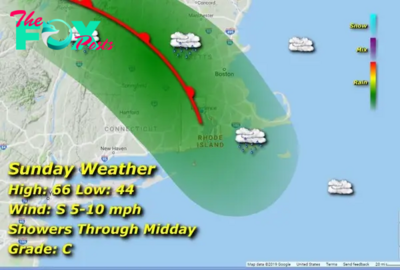
 Politics1d ago
Politics1d agoRhode Island Weather for April 28, 2024 – John Donnelly
-

 Politics1d ago
Politics1d agoThe Promised Land: a short story by Michael Fine
-

 Politics2d ago
Politics2d agoPresident Of Papua New Guinea Tells President Joe Biden: Our Nation Doesn't Deserve Being Labeled Cannibals
-

 Politics2d ago
Politics2d agoOutdoors in RI: big animals, tiny Ticks, huge Trout, Chepachet’s Harmony Railway, 2A – Jeff Gross
-

 Politics3d ago
Politics3d agoPresident Biden Signs Bill To Ban TikTok: How Long Would It Take To Kick TikTok Out Of America?
